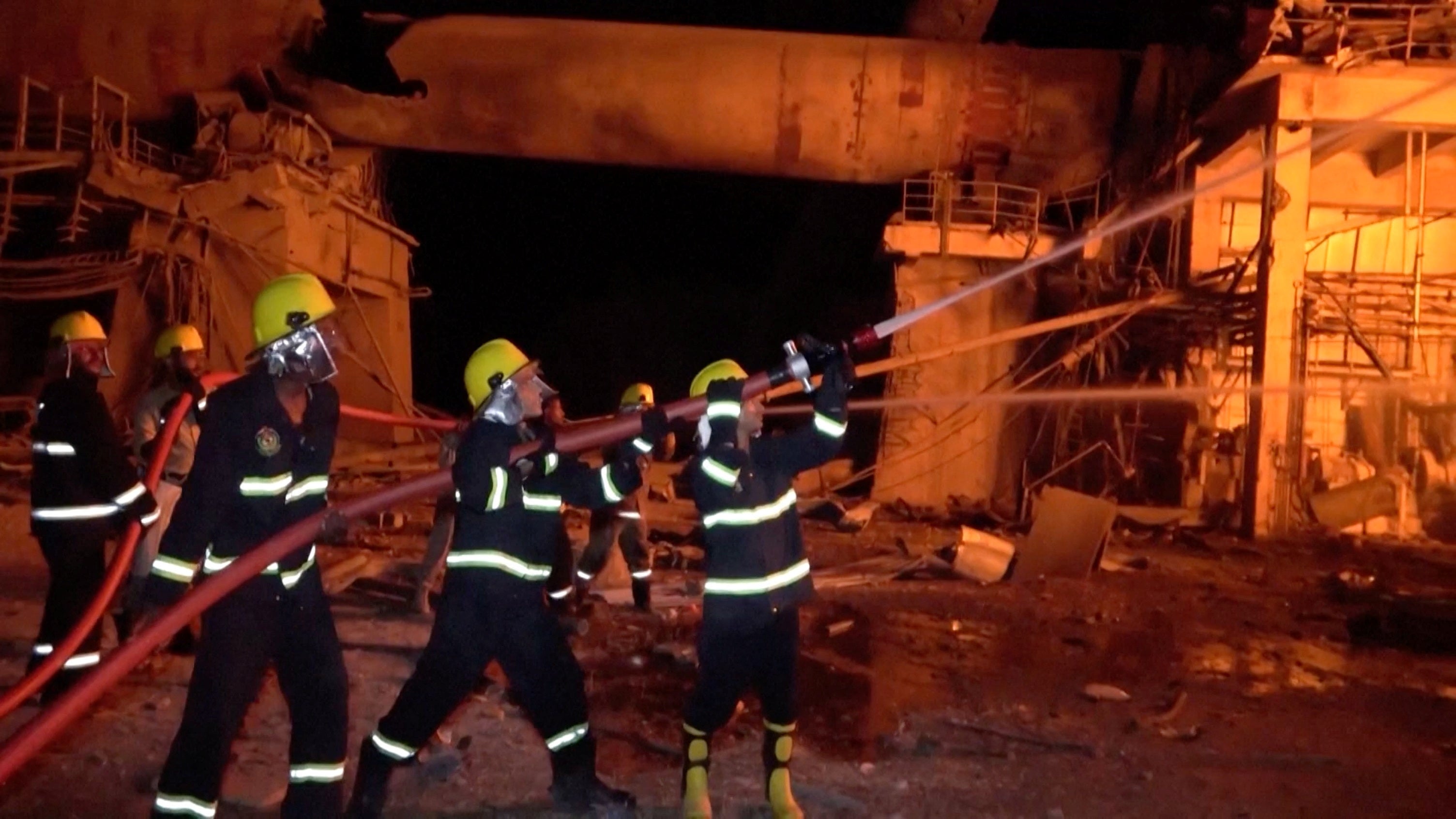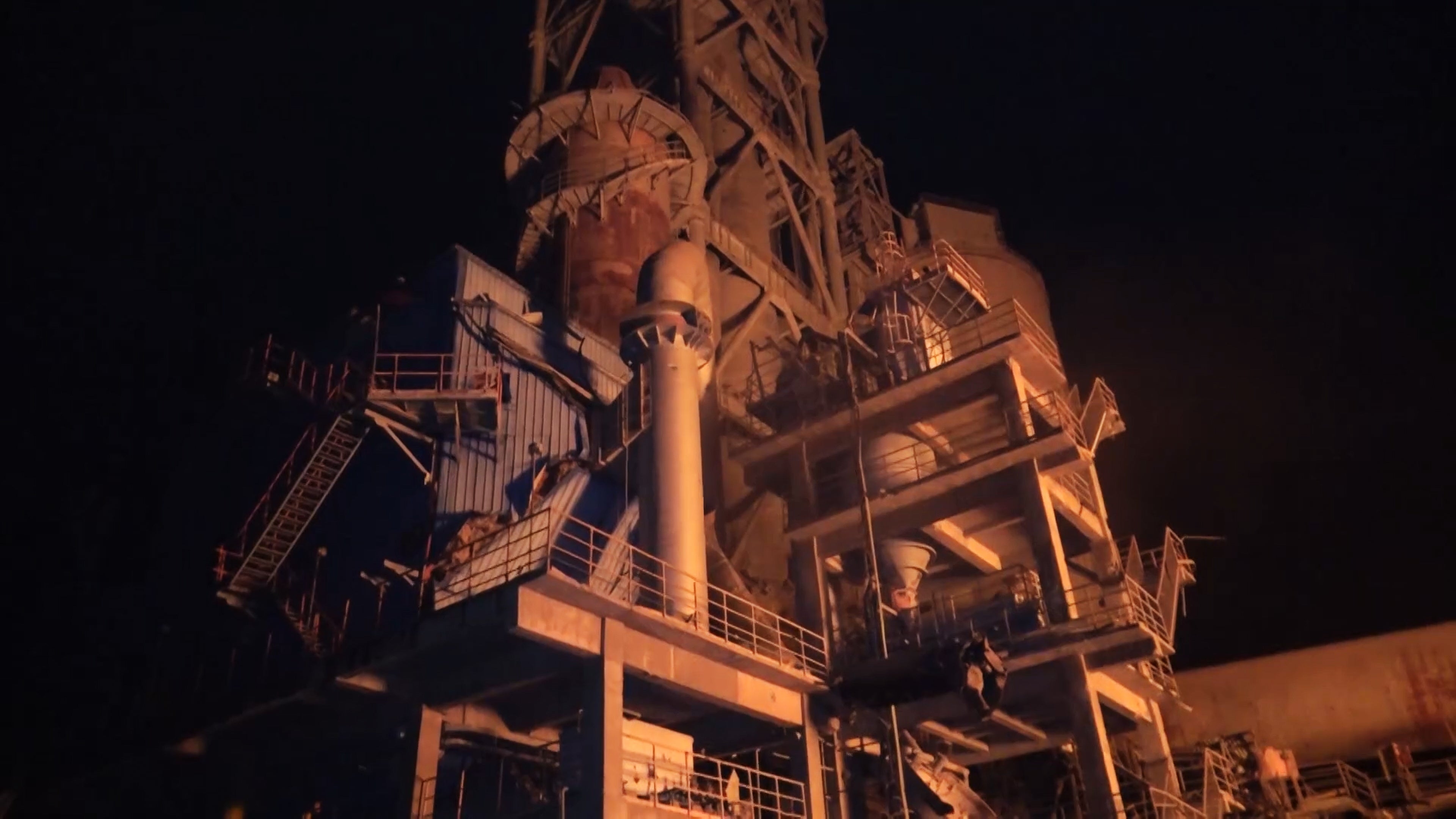ARTICLE AD BOX
At least one person was killed and 35 others injured after Israel attacked Yemen's Hodeidah port in retaliation for a Yemeni missile strike near the Tel Aviv airport.
The Israeli military said its fighter jets struck Houthi targets in Hodeidah and its vicinity on Monday, including a cement factory which it described as “an important economic resource” used for constructing tunnels and military infrastructure.
“The Hodeidah seaport serves as a hub for the transfer of Iranian weapons and equipment for military needs,” the military claimed in a statement. It said the strikes were "carried out in response to repeated attacks carried out by the Houthi terrorist regime against the State of Israel in which surface-to-surface missiles and unmanned aircraft were launched".
In the aftermath of the attack, the Houthis, who largely control the Arab nation, shut down the area around the port and the factory.

Although Yemen said the extent of the damage was unknown, images showed a fire engulfing the container berth of the port.
Anonymous sources told Reuters that 70 per cent of the port’s five docks, warehouses and customs area were damaged. The strikes occurred as two ships were unloading their cargo, a port worker said.
Hodeidah is the second-largest port in the Red Sea after Aden, and it is the entry point for about 80 per cent of Yemen's food imports.
The Israelis carried out more than 10 strikes targeting the port as well as Al Salakhanah and Al Hawak neighbourhoods in the city of Hodeidah, local residents said. Four missiles struck the cement factory.
Shortly before the Israeli attack, the US military had carried out airstrikes near the capital Sanaa, The Times of Israel said.

The Israeli attack came a day after a Yemeni ballistic missile landed near Tel Aviv’s Ben Gurion airport, sending a plume of smoke into the air and causing panic among passengers.
In a televised statement claiming responsibility for the strike, Houthi spokesperson Yahya Saree warned airlines that Israel’s main international airport was “no longer safe for air travel”.
The Yemeni have intensified missile attacks on Israel, saying they are acting in solidarity with Palestinians in Gaza. They have been firing at Israel and shipping in the Red Sea, effectively closing it to maritime trade for the West, since Israel launched its war on Gaza in October 2023.
The war started after nearly 1,200 people were killed and 251 others taken hostage during a Hamas attack on southern Israel. The Israeli air and ground assault has killed 52,000 Palestinians thus far, reduced Gaza to rubble, displaced most of its 2.2 million people, and left them on the brink of starvation, according to humanitarian agencies and the UN.
Israel on Monday approved a plan to seize the whole of Gaza and control the flow of aid to the besieged Palestinian enclave.
The Israeli army has already imposed a near total blockade on the territory, preventing the entry of food, fuel and medicines.

Israeli prime minister Benjamin Netanyahu had vowed retaliation for Sunday's missile strike in Tel Aviv which escaped interception by the country’s air defence systems.
After the strikes on Hodeidah, Houthi official Abdul Qader al-Mortada said in an X post that Israel should wait for the "unimaginable".
In March, American president Donald Trump ordered his military to ramp up airstrikes on Yemen. The attacks have killed hundreds of people so far.
US airstrikes on an oil port in April killed 74 people and wounded 171, the Houthis said.









 English (US) ·
English (US) ·